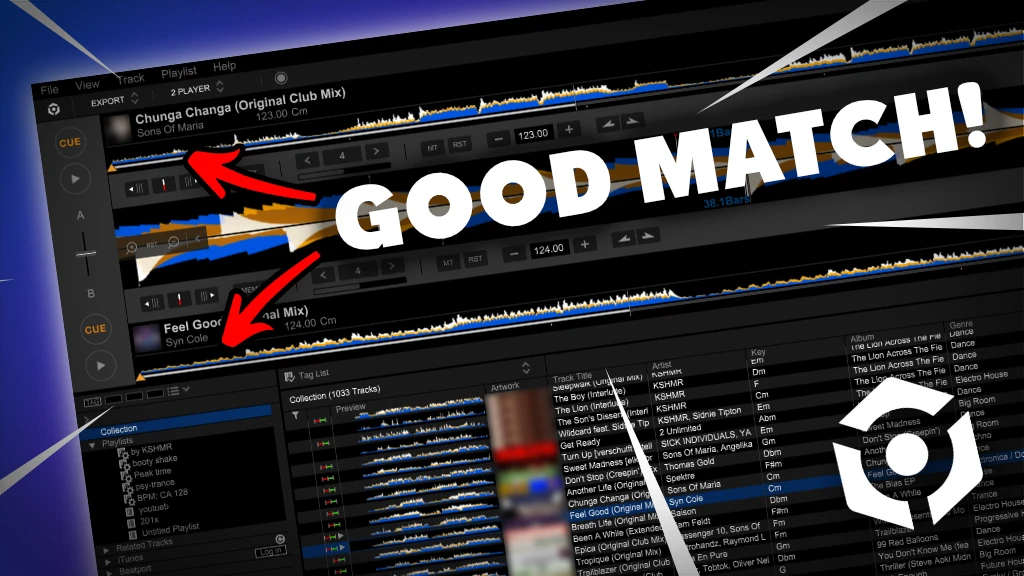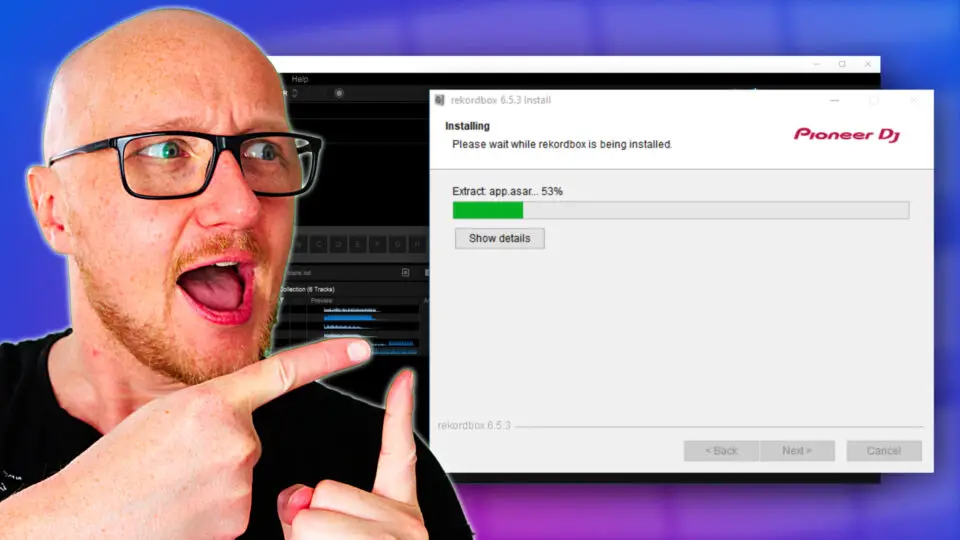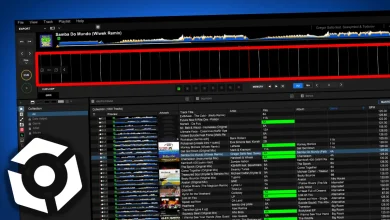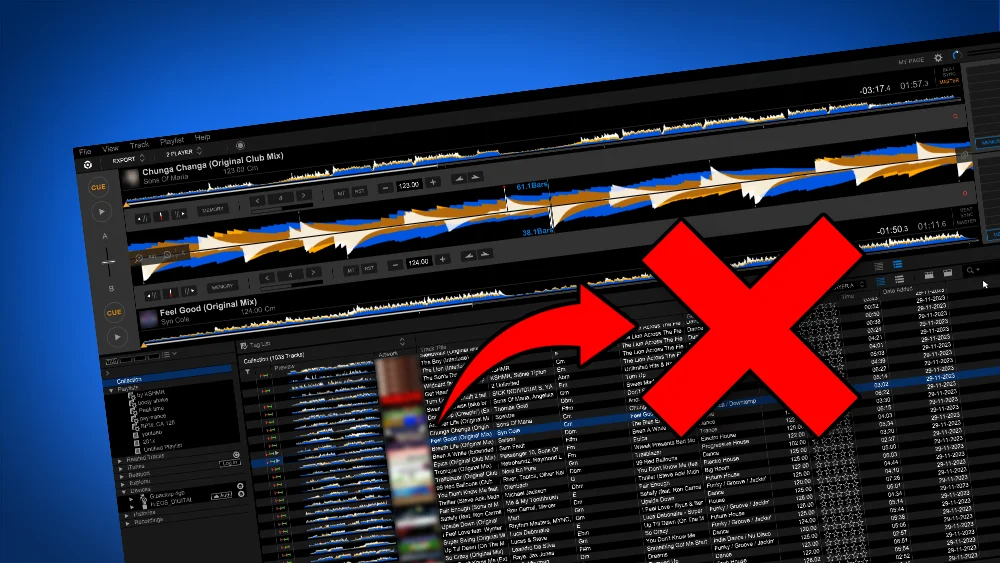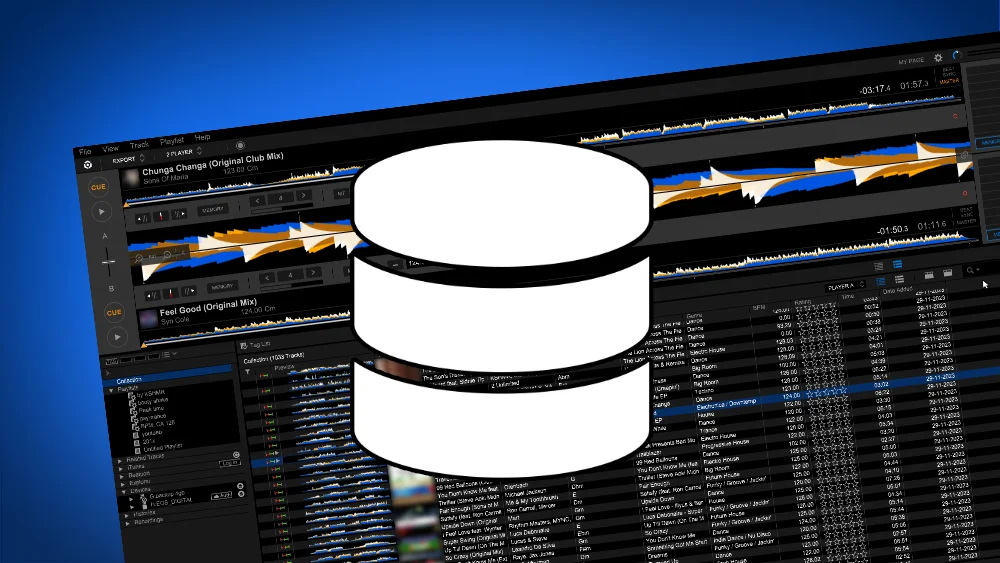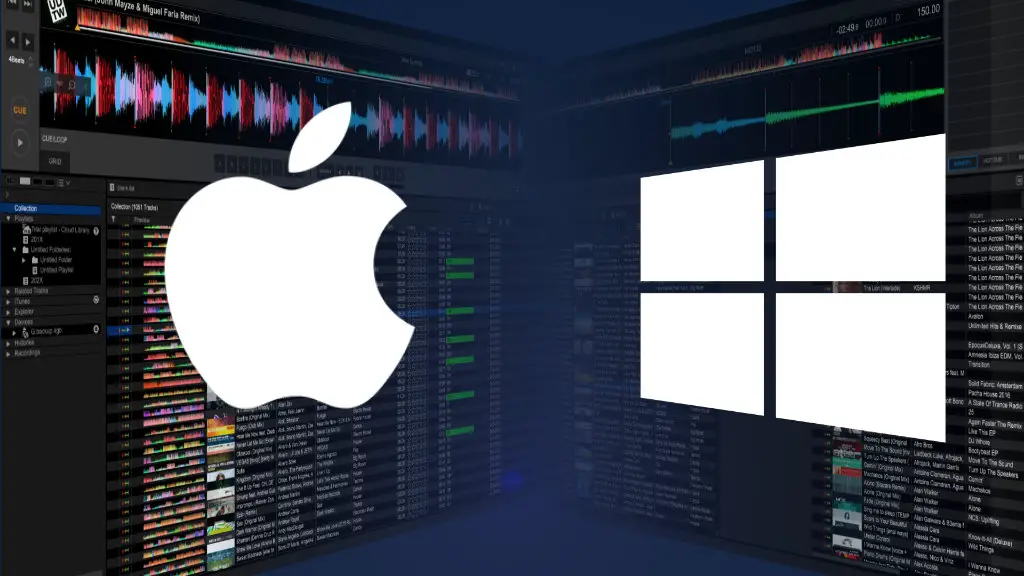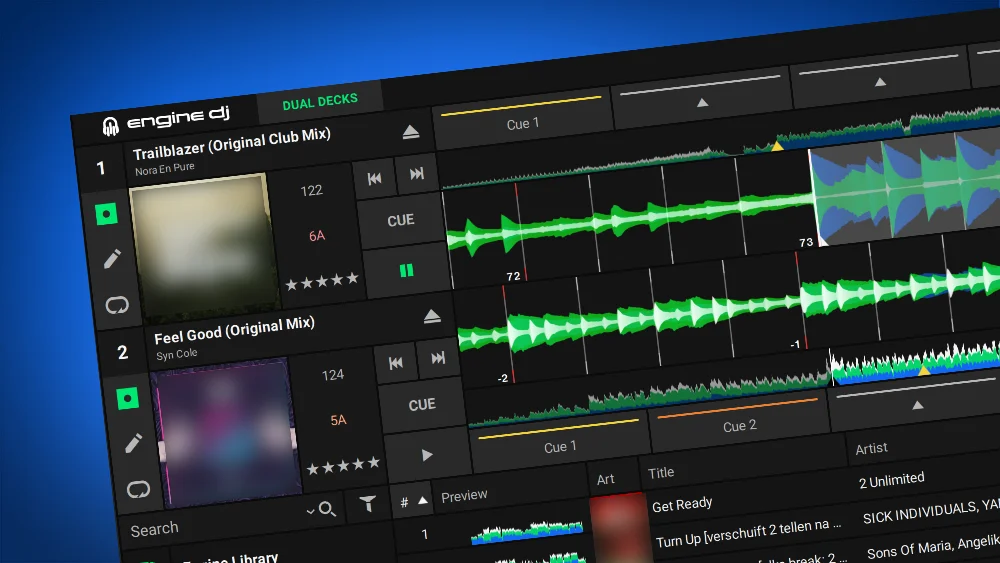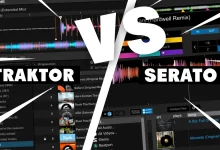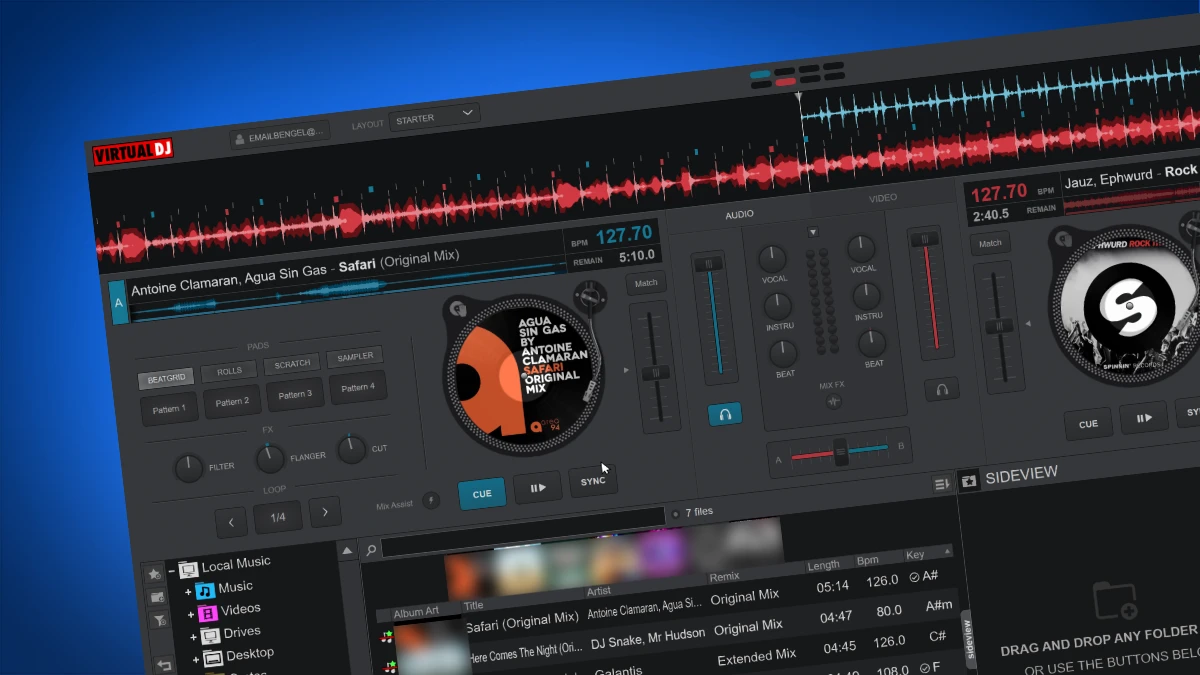Rekordbox 7 is out! A shameless cash grab
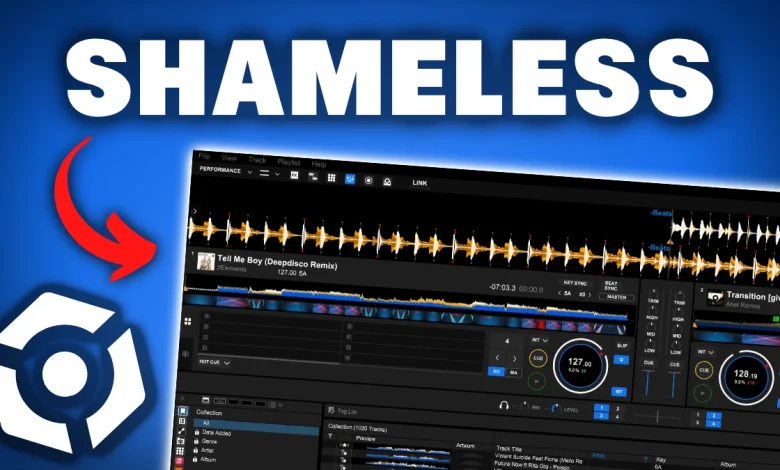
Rekordbox 7 is here!
After a couple of months of beta-testing, Rekordbox 7 is finally here!
Rekordbox 7 was released on April 14th 2024.
The release was chaotic.
Alphatheta put out an email to everybody at once, so everybody rushed to the website at once.
The website was offline for hours.
Which is why companies like Apple do gradual releases over days.
To be honest, the release feels a little bit like a catch-up of long-overdue features that other DJ software already had for years.
Nevertheless, we they are finally here!
User interface
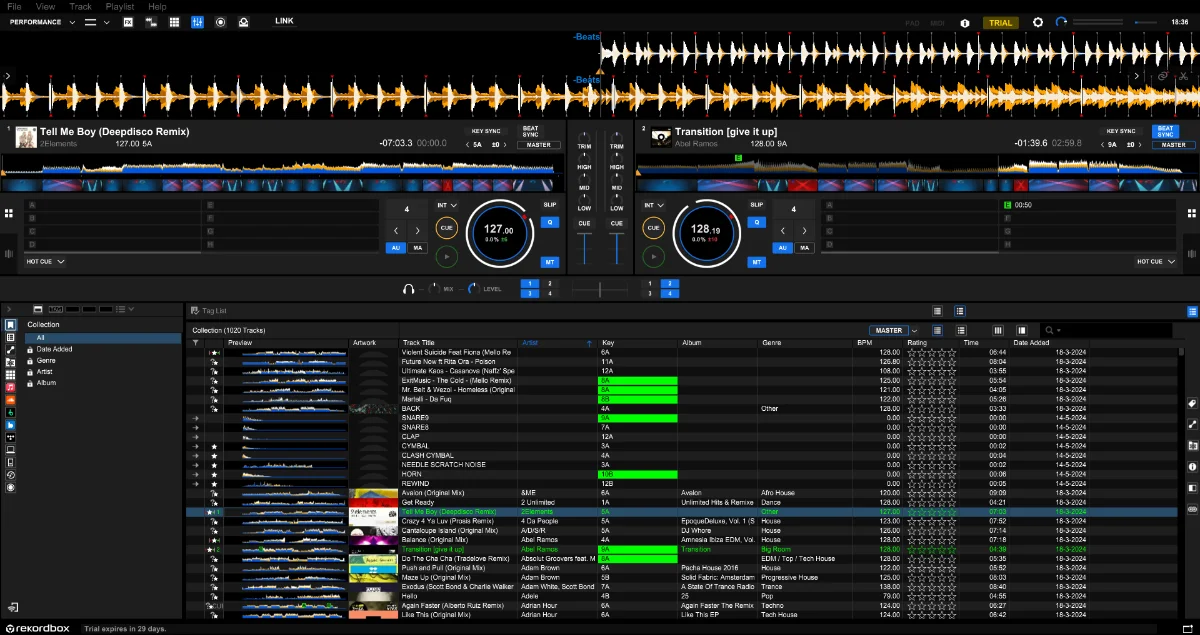
The User Interface has gotten an overhaul.
Nothing major, but it looks a tad different.
Overall, it looks a bit cleaner and nicer.
Menu
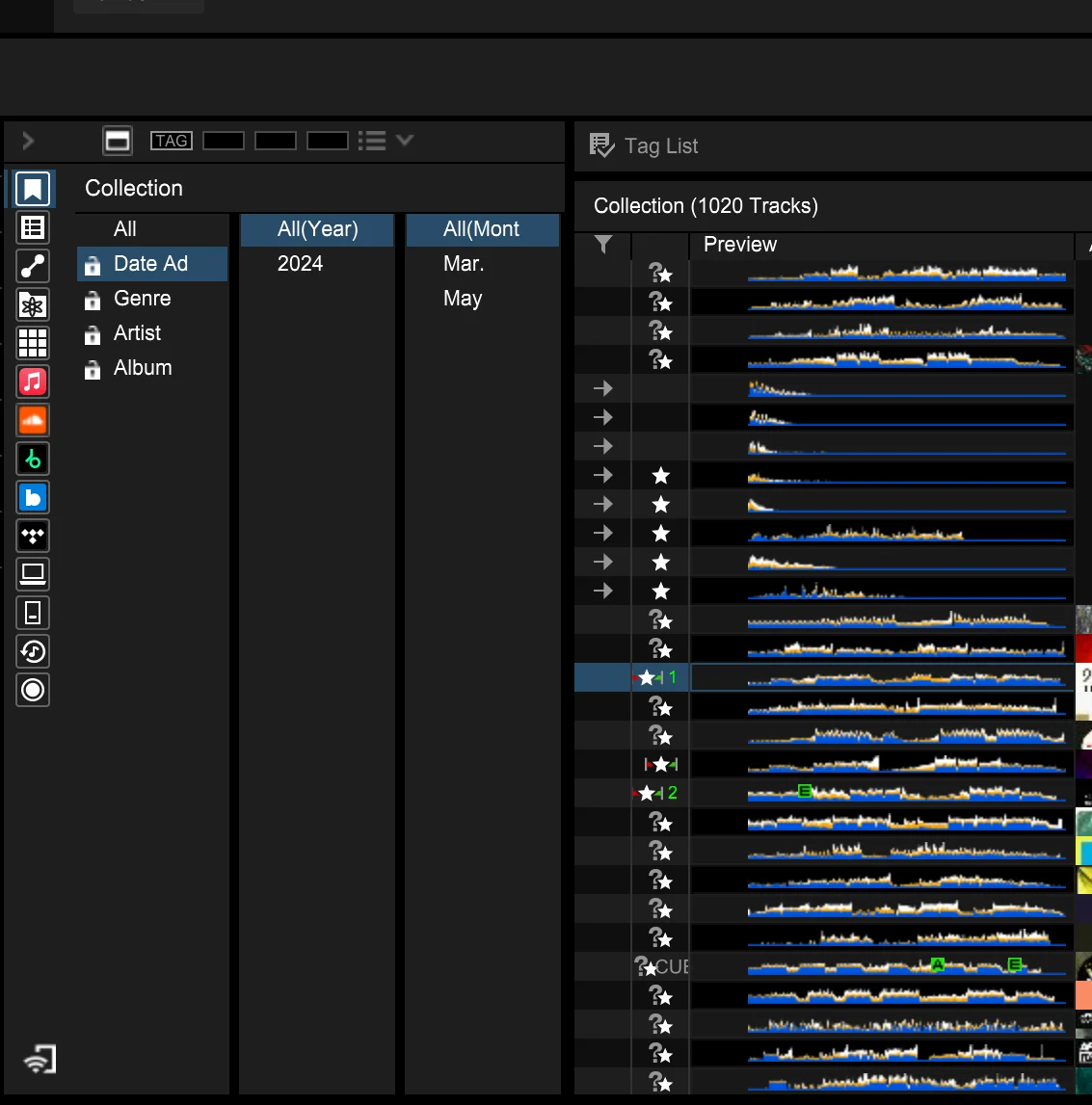
The biggest difference is in the menu on the left.
I like the icon-style button approach.
It now acts more like a CDJ where you can filter by date added, genre, artist and album.
More buttons, yay!
But one of my biggest complaints of Rekordbox is still the amount of buttons.
An even bigger complaint is the size of buttons, or rather the absence of size.
Well, the amount of buttons has increased and the size increased!
The Quantize and Master-tempo button were so small, they are normal-size now!
Performance improvements
Rekordbox was always slow and sluggish compared to other DJ software.
They tried to improve this, and indeed it is a little bit more responisive!
Faster startup
Rekordbox was amongst the slowest of all DJ software to startup.
Now they improved!
It’s still not the 1 second startup of Virtual DJ, but at least, it’s something.
Apple silicon
It was long overdue, but Rekordbox finally supports Apple silicon!
Apple silicon was announced back in 2020, and Pioneer finally caught up in 2024!
You can now use the native speed of Apple silicon, without having to use the Rosetta conversion layer.
Besides the inconvenience of Rosetta, basically the only thing this helps with is the speed of analyzing tracks.
But in most day-to-day use, you probably won’t notice it.
Faster …
- Waveform rendering
- Improved audio threading
- Database reads and writes which helps overall sluggishness
Overall everything feels a little bit faster and more responsive.
But it is still laggy compared to Virtual DJ or Engine DJ.
Automatic detection of Cues
Serato and Virtual DJ had this feature for a while now.
Rekordbox finally supports automatic detection of Memory Cues and Hot Cues.
In a very convoluted way, you could do it Mixed-in-key already.
But it was far from fast, convenient or accurate.
AlphaTheta locked this feature behind a paywall: you need a subscription to use it.
In order to use it in Rekordbox, you need to re-analyze your songs.
Just right-click on your tracks and choose “Analyze”.
You can drag tracks in the “CUE-analysis Playlist”-playlist, and it starts to learn where you set your Cue-points, so it can set cue points in the places where you want them in the future.
This is a really cool feature!
Maybe not cool enough for $120 a year, but still!
Learn how to master hot cues and memory cues here … yes, manually … in a way that is actually useful 🙂
Collection Radar
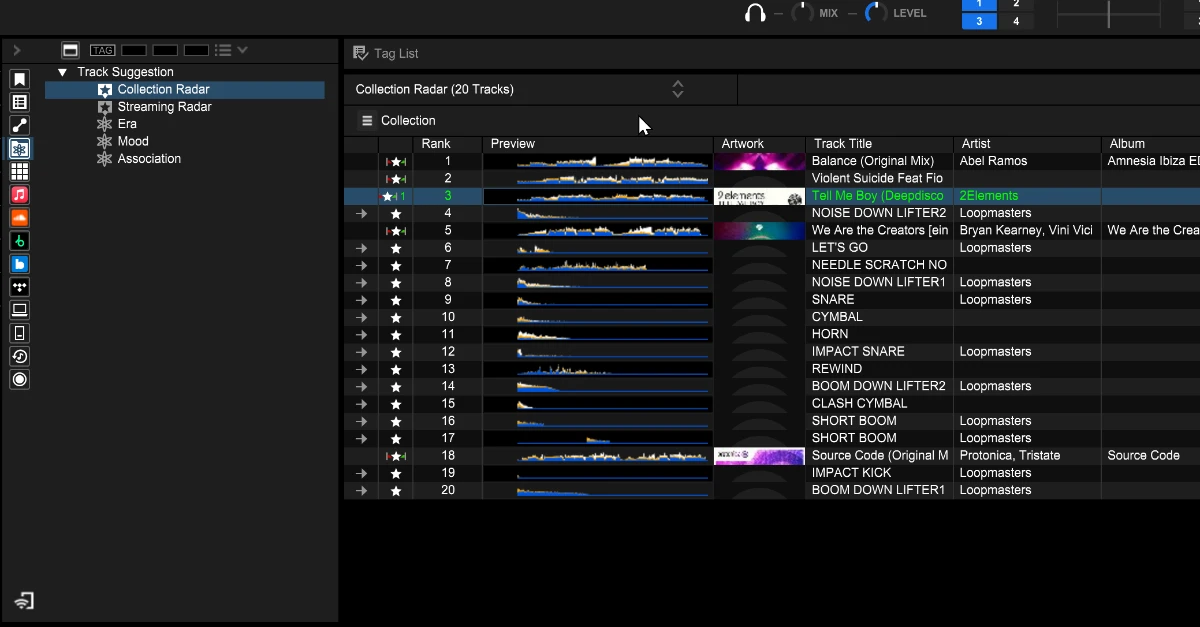
A little help to find new track suggestions, is always welcome.
Here is Collection Radar and Streaming Radar!
It allows you to find similar tracks based on the track you are playing or have selected.
Collection Radar does this for your own library, Streaming Radar for streaming services.
A feature that Virtual DJ had for years already, but nice to have in Rekordbox as well.
You still need to set criteria like you would with related tracks.
It doesn’t work very well like you can see in the screenshot.
It find sound effects and tracks completely unrelated.
But some of the tracks matches are really good!
So, if you would use it on a day-to-day basis, is yet to be seen.
I hope the algorithms will improve over time, after all, Spotify’s sucked but has become pretty good over the years.
Export mode
Dual player mode
We had 2 deck modes in the export mode: 1 deck and 2 decks (besides, a simple player and full browser).
There is now a dual-player mode.
When you press the link-button, it can link 2 tracks together, like they were glued together.
Controls apply to both tracks at the same time.
Meaning that when you press play: both tracks start to play; when you press Cue: both tracks stop.
And a browse-mode.
Extra features
There are some features added that where previously only existing in the Performance mode.
- Beat sync (big button)
- Key Sync (big button)
- High/mid/low frequency filtering
New preferences screen
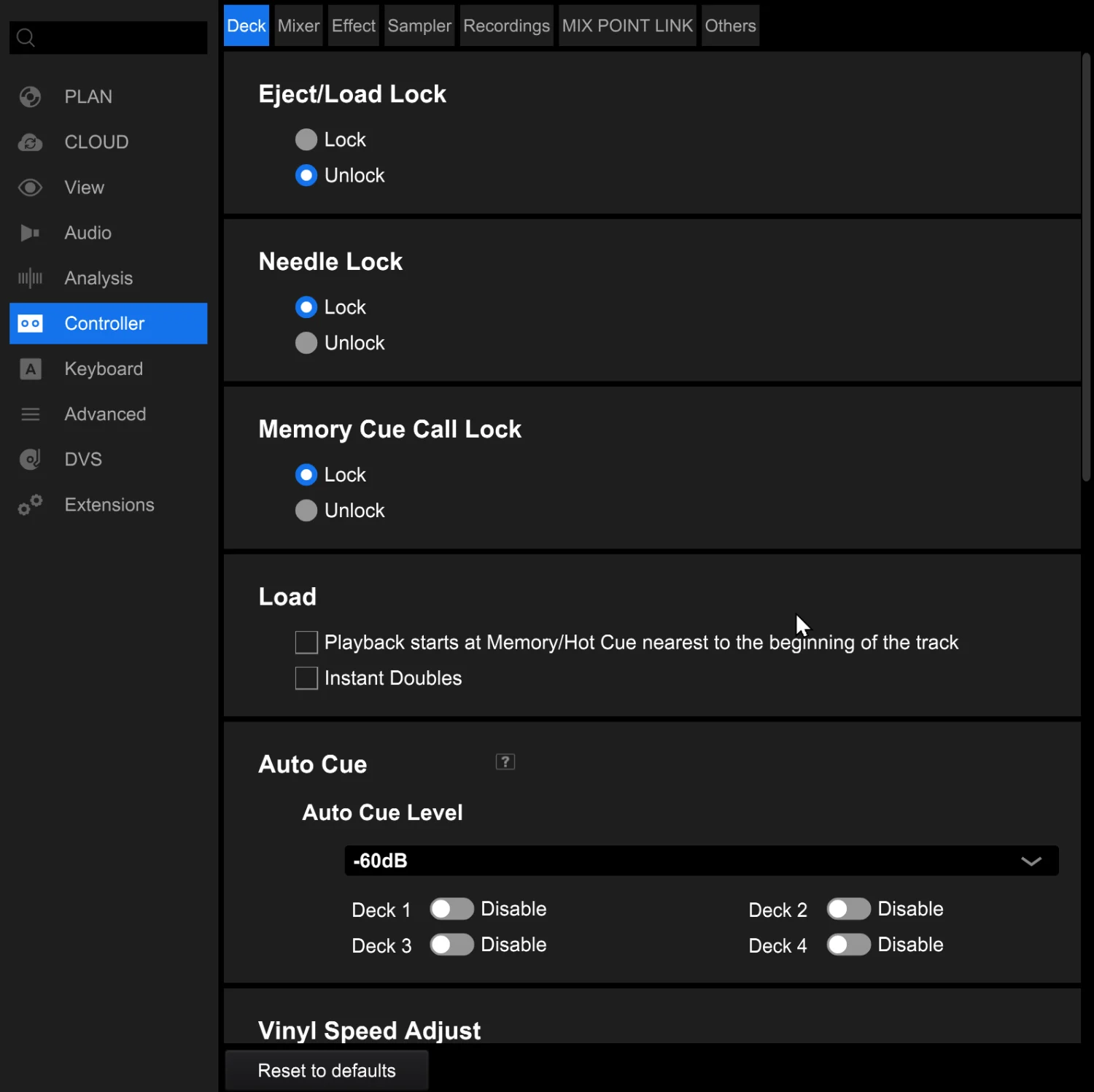
This might be the best feature about this whole update: the new preferences screen.
I don’t know about you, but I always have to Google Rekordbox settings, because I can never find the right one.
The new screen is nicely organized and categorized.
You can Search now!
Virtual DJ had this for years, but finally Rekordbox can do this too now!
The great Pioneer paywall
But when I first started RB7, I was forced you into a free-trial!
The way they structured it at startup looked like I subscribed to something that I never intended to do.
It was only in the settings-screen that I saw I still was on the free plan.
AlphaTheta’s dark patterns getting sneakier and sneakier.
New-features and features-that-are-slightly-useful (vocal detection, automatic cue detection, even the new menu structure – not kidding-) are hidden behind a $120 a year paywall.
The $120-version is the frugal plan.
The downside is that companies that operate with subscription plans almost never benefit the user.
A great example is Adobe with Photoshop.
Photoshop hasn’t become better software over the years with more features, it has become more expensive!
(okay, I have to admit the generative AI features are pretty cool, but other than that, what has really changed over the last 10 years in Photoshop?)
Without a subscription, companies need to fight with each other over features and user-friendliness with their competition.
Every version needs to be better and more innovative than the previous one to make users pay.
But with a subscription model, that need is totally gone.
It seems that AlphaTheta is playing catch-up with the competition over the last 10 years.
Pioneer DJ became market leader because they actually Pioneered something in 2001: the CDJ 1000.
Pioneer should do some Pioneering!
This attitude has been going on for years now: with stem separation, waveform colors, automatic cue detection, automatic key detection … other’s were first!
Conclusion: is Rekordbox 7 better?
I haven’t decided yet.
Yes, the new features are nice.
Yes, the improved performance is nice.
Yes, the improved UI looks nice.
But to be honest, it’s more of the same.
Not that it is necessarily a bad thing, because Rekordbox wasn’t bad software before.
It just wasn’t GREAT software, either.
Very little has changed since version 6, that I can’t say that version 7 great, it’s just OK.
We have to use it, because it is software for industry standard hardware, not because it’s great.
I’m still a big fan of Virtual DJ, which is great software in my opinion!


